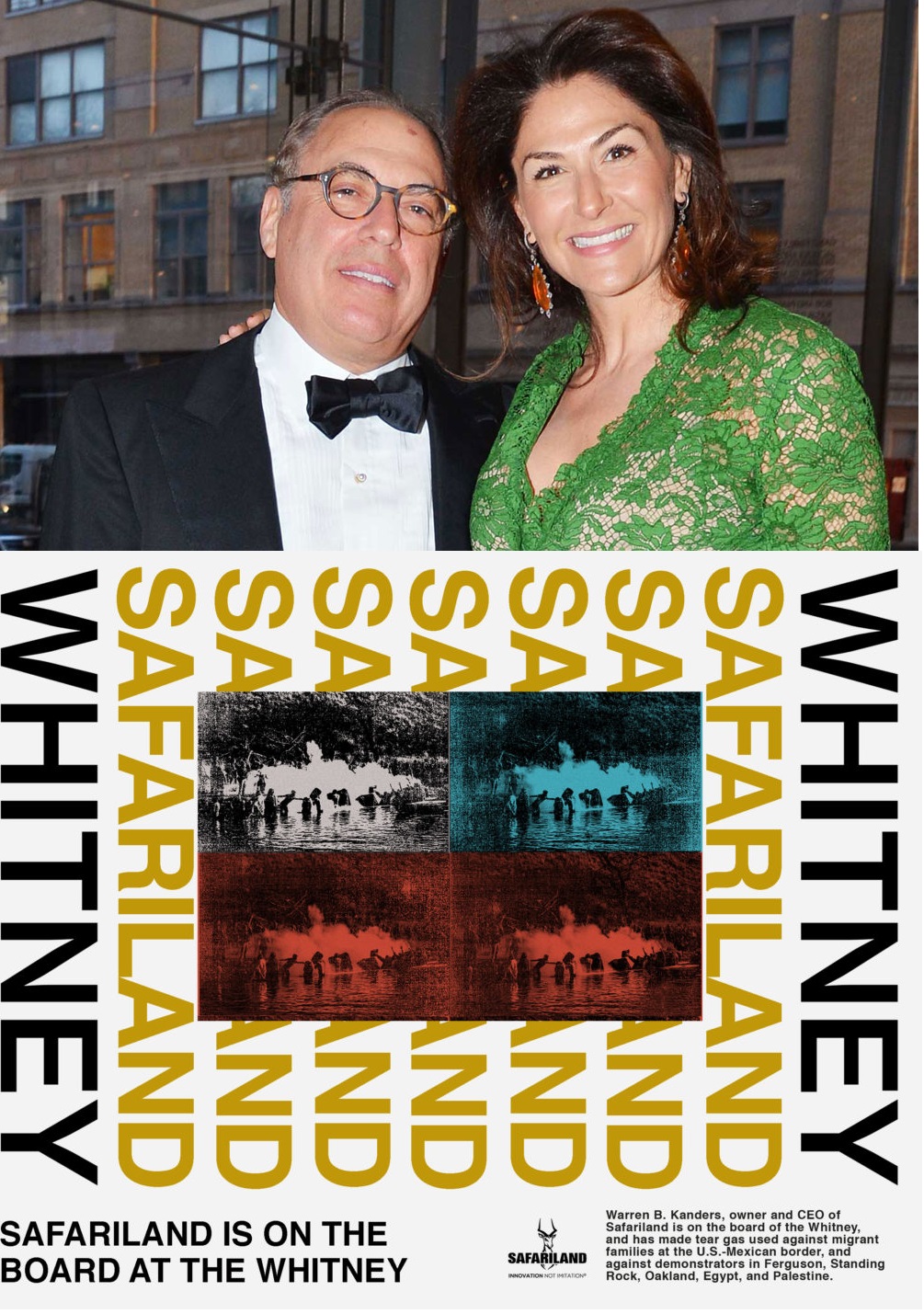After Warren Kanders Resignation From Whitney, Museum Boards Ponder Their Futures
/After Warren Kanders Resignation From Whitney, Museum Boards Ponder Their Futures
Last week ended on a positive note for protesters and artists committed to forcing the resignation of Warren B. Kanders as vice chair of the board of New York’s Whitney Museum.
Protesters were adamant that his ownership of Safariland, a defense-manufacturing company that supplied state-of-the-art tear gas to quell protesters everywhere in the world disqualified him as any kind of representative of artists opposed to global militarization. Evidence mounted that Kanders’ stake in Sierra Bullets,linked him directly to high-velocity ammunition allegedly used by Israeli soldiers in Gaza against Palestinian civilian protesters.
With Kanders out at the Whitney and no specified game plan on how to move forward, all parties involved from artists to activists, patrons and buyers of art are asking what happens next. ARTnews writes that the Kanders’ resignation is a sign “of the shifting balance between museum boards and their critics, with protesters believing that they have won the day.
Don’t overthink the situation, say many of the critics, who have generally taken a stand against defense contractors and fortunes made from armaments worldwide. The Sackler family also has been the target of protests as they are tied deeply — if not exclusively — as profiteers tied to America’s epidemic drug crisis launched by OxyContin.






